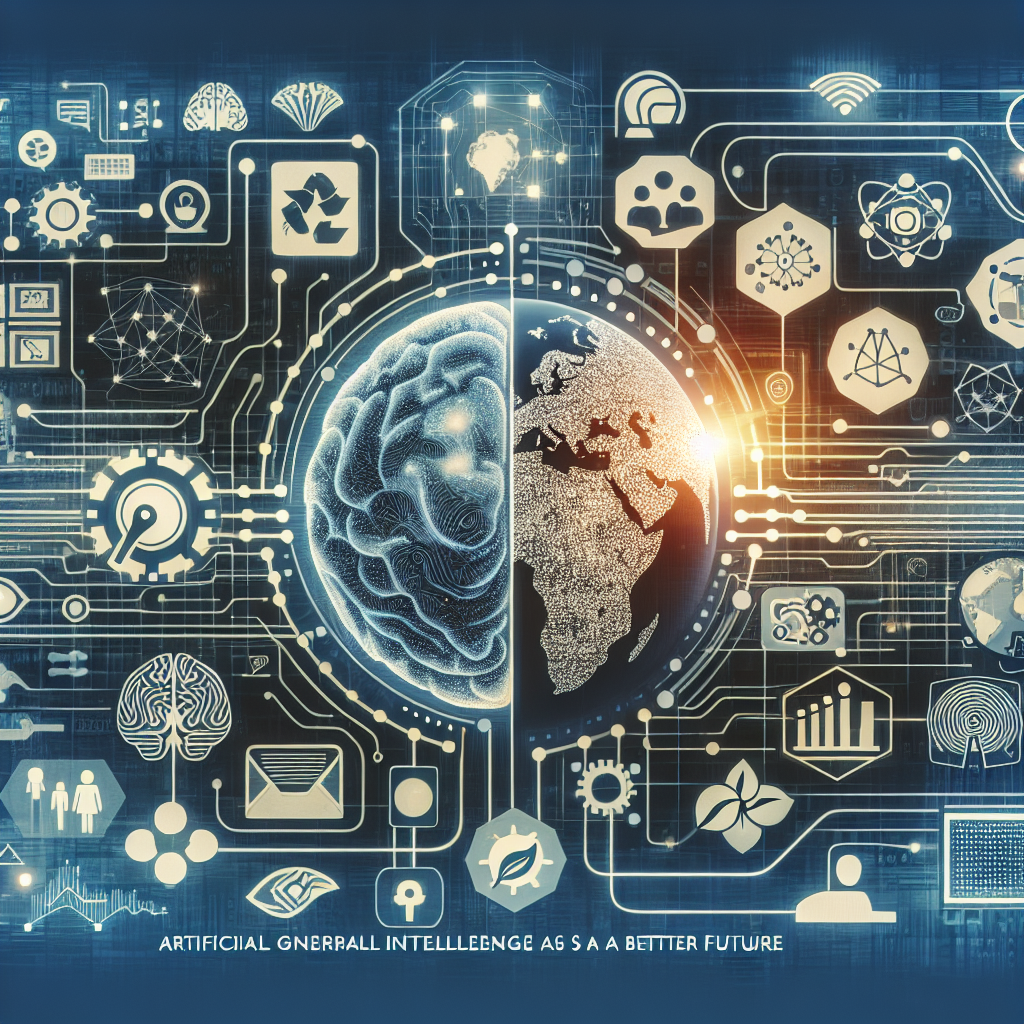The Role of AGI in Solving Global Challenges: How Artificial General Intelligence Can Help Shape a Better Future
Artificial General Intelligence (AGI) is a term used to describe the development of machines that possess the ability to learn, understand, and apply knowledge in a way that is indistinguishable from human intelligence. While current AI technologies are limited to specific tasks and domains, AGI holds the promise of creating machines that can think and reason across a wide range of domains, much like a human being.
As the world faces a growing number of complex and interconnected challenges, from climate change and resource scarcity to economic inequality and global pandemics, the potential of AGI to help address these challenges is becoming increasingly important. In this article, we will explore the role of AGI in solving global challenges and how it can help shape a better future for all.
The Potential of AGI in Solving Global Challenges
AGI has the potential to revolutionize the way we address global challenges by providing us with powerful tools and insights to make better decisions and take more effective actions. Here are some ways in which AGI can help shape a better future:
1. Climate Change: AGI can help us better understand the complex dynamics of climate change and develop more accurate models to predict its impact. By analyzing vast amounts of data from satellites, sensors, and other sources, AGI can identify patterns and trends that humans may not be able to see, helping us make informed decisions on how to mitigate and adapt to climate change.
2. Resource Scarcity: As the world’s population continues to grow, the demand for resources such as water, food, and energy is increasing at an unprecedented rate. AGI can help us optimize resource allocation, improve efficiency, and develop sustainable solutions to ensure that everyone has access to essential resources.
3. Economic Inequality: AGI can help us address economic inequality by identifying the root causes of poverty and inequity and developing targeted interventions to address them. By analyzing data on income distribution, employment trends, and social indicators, AGI can help policymakers design more effective policies and programs to reduce poverty and promote social mobility.
4. Global Health: AGI can play a crucial role in improving global health outcomes by analyzing vast amounts of medical data, identifying patterns and trends in disease outbreaks, and developing personalized treatment plans for patients. By harnessing the power of AGI, we can accelerate the development of new drugs, vaccines, and medical technologies to combat infectious diseases and improve healthcare delivery worldwide.
5. Education: AGI can revolutionize education by providing personalized learning experiences tailored to each student’s needs and abilities. By analyzing student data, identifying learning gaps, and adapting instructional materials in real-time, AGI can help students achieve better academic outcomes and acquire the skills they need to succeed in the 21st century.
FAQs
Q: What is the difference between AGI and narrow AI?
A: Narrow AI refers to AI systems that are designed to perform specific tasks or functions, such as image recognition, language translation, or playing chess. AGI, on the other hand, aims to create machines that can think and reason across a wide range of domains, much like a human being.
Q: How close are we to achieving AGI?
A: While significant progress has been made in AI research in recent years, achieving AGI remains a challenging and complex task. Experts predict that we may be able to develop AGI within the next few decades, but there is still much work to be done to overcome the technical and ethical challenges associated with creating machines that possess human-level intelligence.
Q: What are some of the ethical considerations surrounding AGI?
A: As AGI becomes more advanced and capable, there are growing concerns about the potential risks and implications of creating machines that possess human-level intelligence. Some of the ethical considerations include the impact on employment, privacy, security, and the potential for AGI to surpass human intelligence and control.
Q: How can we ensure that AGI is developed and used responsibly?
A: To ensure that AGI is developed and used responsibly, it is essential to establish clear guidelines and regulations to govern the design, development, and deployment of AI systems. This includes addressing issues such as bias and discrimination, transparency and accountability, safety and security, and the impact on society and the environment.
In conclusion, AGI has the potential to revolutionize the way we address global challenges and shape a better future for all. By harnessing the power of AGI, we can unlock new opportunities, solve complex problems, and create a more sustainable and equitable world for future generations. It is essential that we approach the development and deployment of AGI with caution and foresight to ensure that it benefits humanity and enhances our collective well-being.

